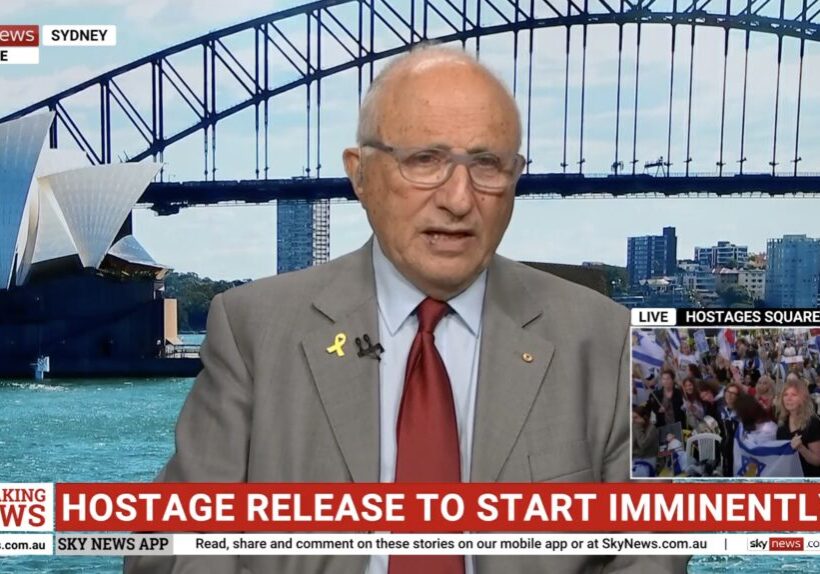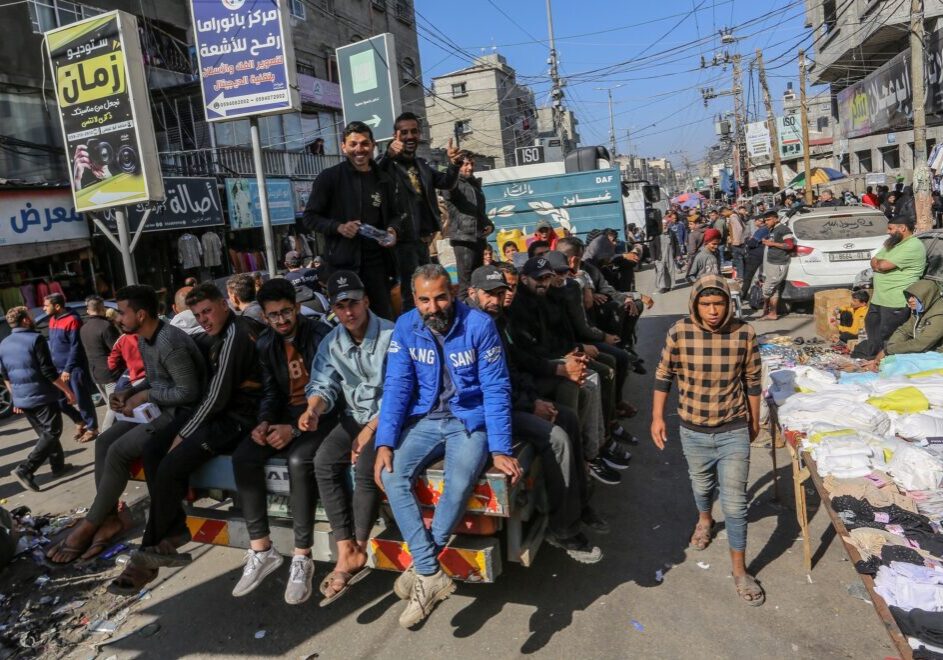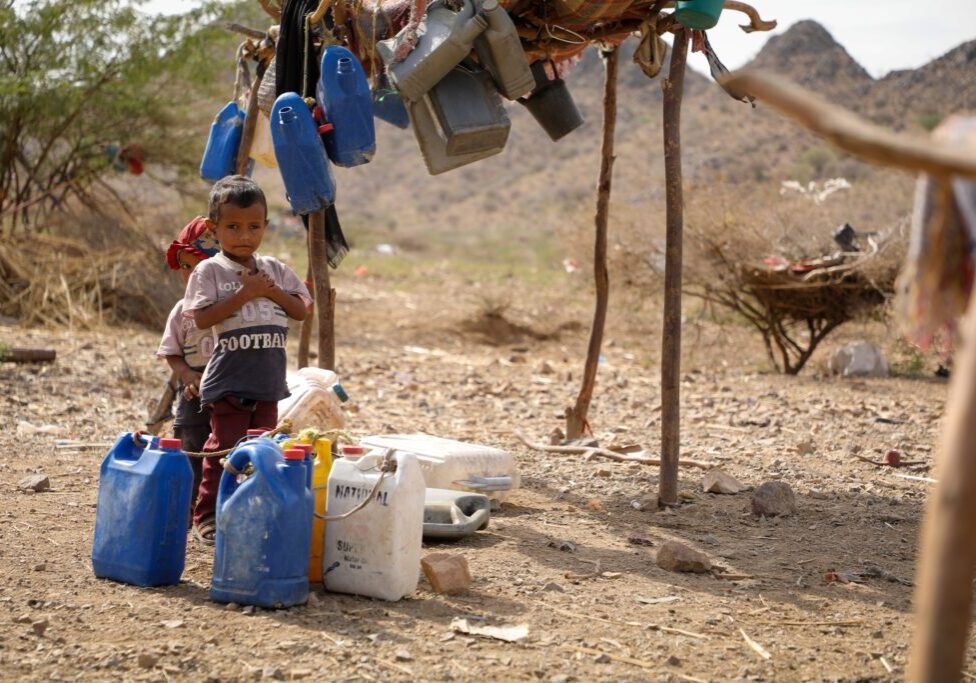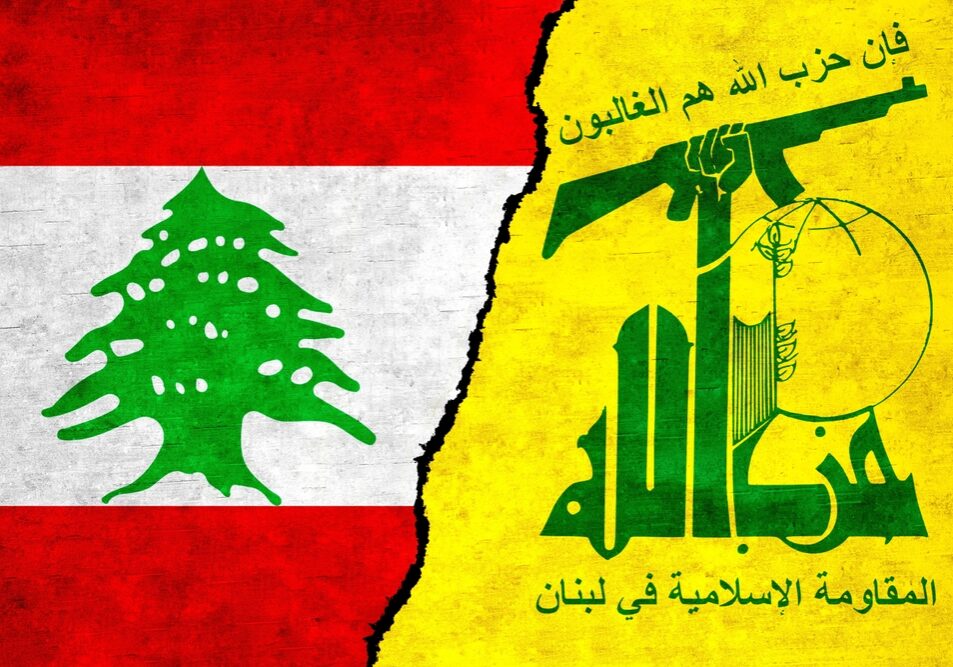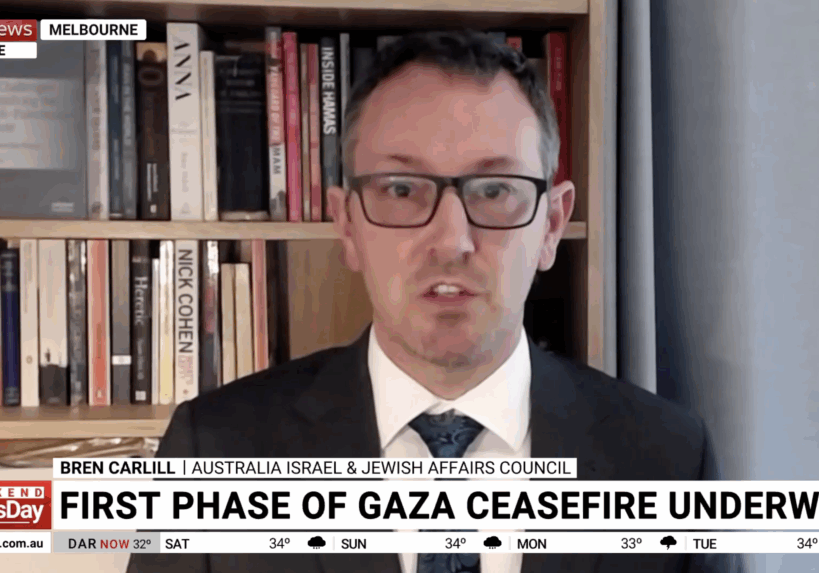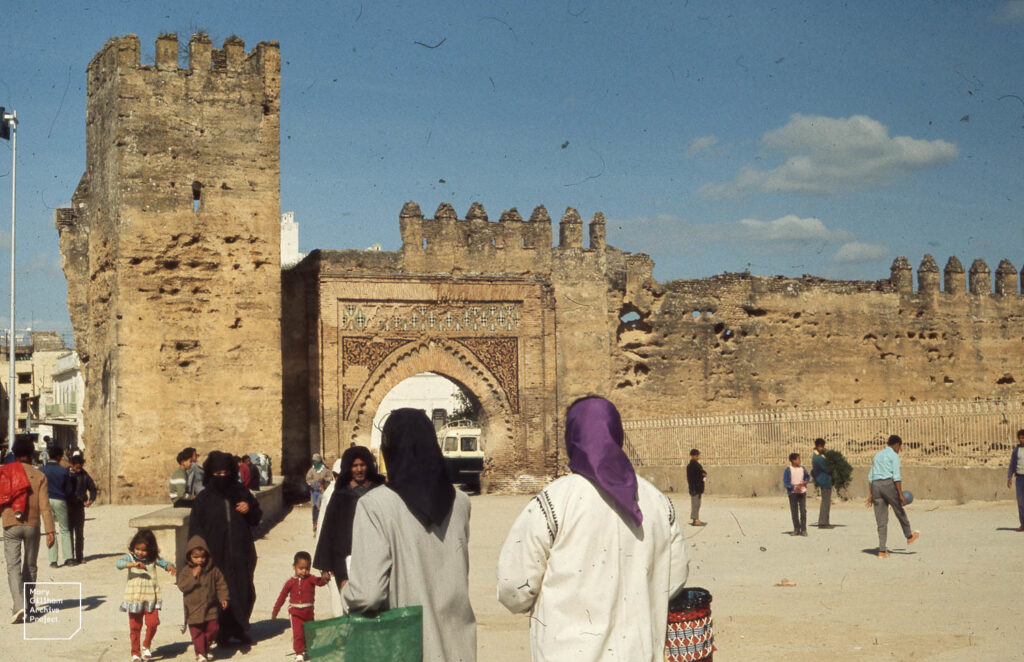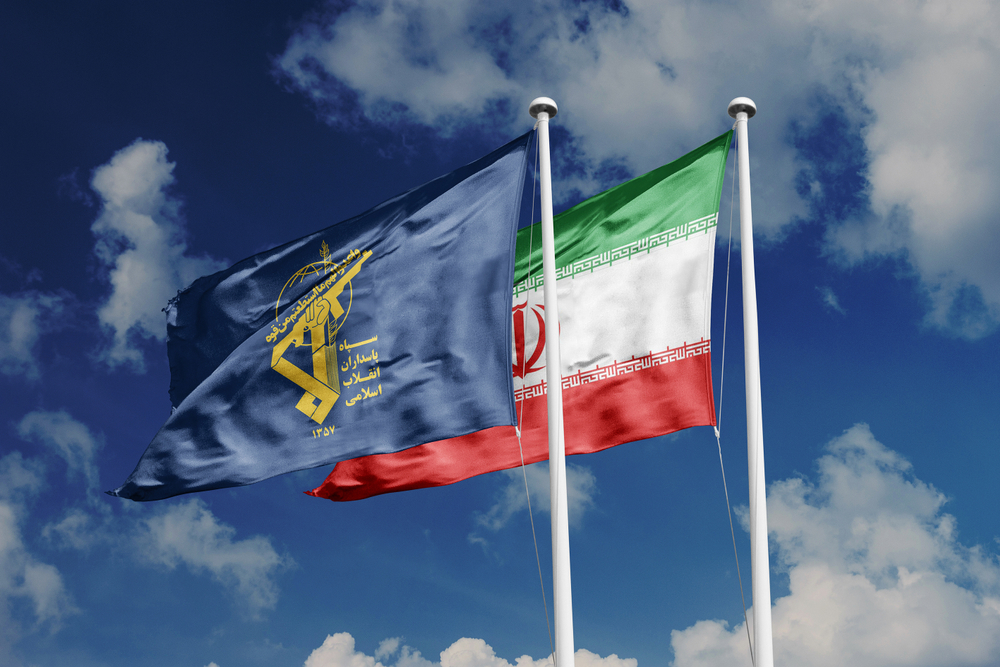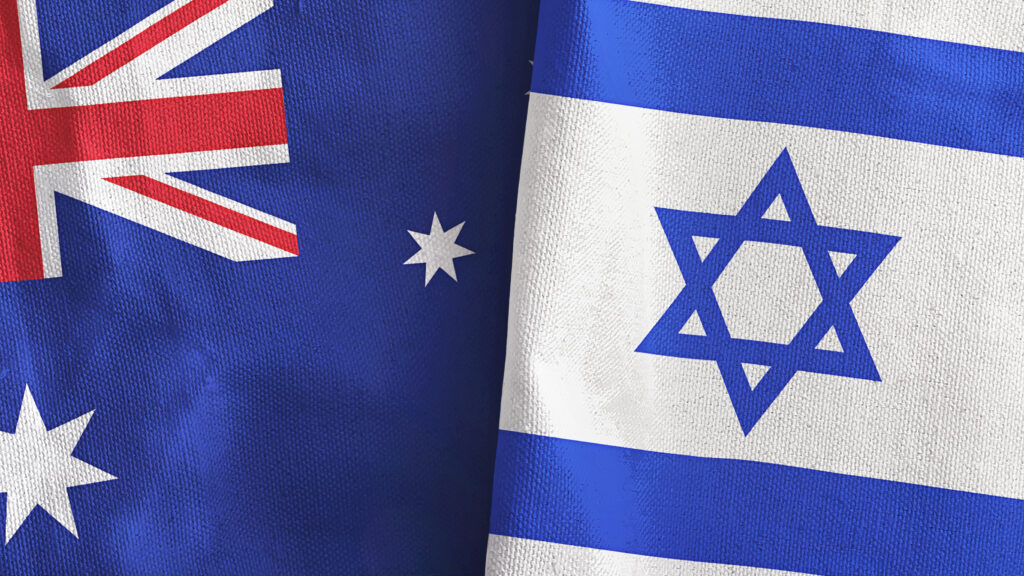FRESH AIR
UPDATES
Hamas again largely missing from Sophie McNeill’s latest Gaza expedition
August 8, 2016 | Allon Lee
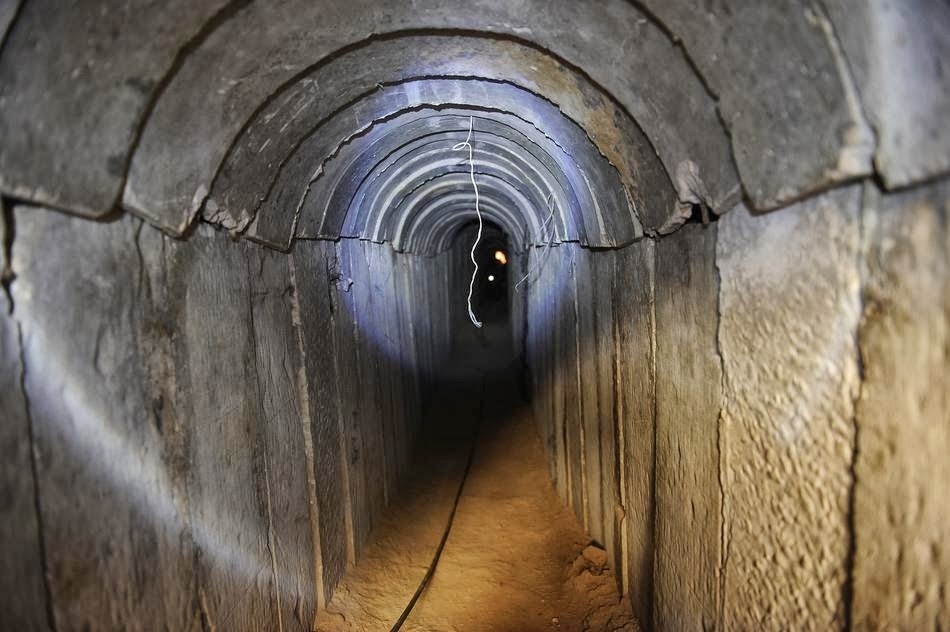
On ABC TV, Radio and the national broadcaster’s website (July 30), Middle East correspondent Sophie McNeill returned to what is clearly her favourite type of story – a one dimensional narrative focusing on Palestinians suffering in Gaza, where only Israel is deemed culpable for their plight.
Her hook was to focus on the challenges of rebuilding homes damaged or destroyed in Gaza during the 2014 conflict.
The story’s dissemination across three different media offers a window into how the selection of what to include and to leave out might marginally affect the quality of the end product – but the central message of Israeli guilt remained constant across all of them.
On ABC TV “7pm News” in Victoria, newsreader Ian Henderson’s introduction said rebuilding is “painfully slow as Israel tightly controls the importation of building materials,” omitting from responsibility Egypt, which shares a border with Gaza over which Israel has no control.
However, an earlier version on ABC Radio “AM” included McNeill briefly admitting that Egypt also enforces a blockade.
All three reports began with McNeill’s favoured style of opening – introducing viewers to the travails of ordinary Palestinians who are just trying to live their lives but are being unreasonably oppressed by Israel.
According to McNeill, Fida Mosabeh’s home was damaged when hit during an Israeli airstrike on their neighbourhood on “the outskirts of Gaza”.
It is disappointing McNeill didn’t name Mosabeh’s neighbourhood. This is important because most of the damage that occurred in Gaza happened in the outer suburbs, such as Beit Hanoun and Shuja’iyya, which are Hamas strongholds and were the scenes of some of the fiercest fighting during the 2014 war.
This is not incidental because Hamas deliberately based its fighters and military infrastructure in residential areas, using civilians as human shields.
The TV report said Israel restricts many building materials with Israeli spokesman Adam Avidan quoted vaguely explaining that Hamas diverts these materials for “military needs.”
The “AM” report was at least more informative on Avidan’s point, with McNeill explaining that, “Hamas, which runs Gaza… have been caught building new attack tunnels that reach from Gaza into Israel.”
The Gaza Reconstruction Mechanism (GRM) involving joint UN, Israel and Palestinian Authority oversight of cement importation into Gaza was mentioned, but it was implied it is only recent.
On the website, she wrote that “the issue of importing concrete into the besieged Strip” is now “the newest battleground between the people of Gaza and Israel.”
On “AM” and TV, McNeill said, “Israel now permits cement to enter the small territory” whilst discussing the GRM.
Yet in fact, the GRM was finalised shortly after the 2014 conflict and had facilitated the entry to Gaza of millions of tons of construction material since Oct. 2014, but Hamas has hampered its implementation.
McNeill said one Palestinian, Abdel Rahman, who is currently rebuilding his home, told her it was “humiliating that Israel first destroyed his home; and now he needs their approval to rebuild it” under the GRM arrangements.”
Maybe she could’ve asked Abdel Rahman if Hamas’ military doctrine of fighting from within residential areas means it therefore holds even a modicum of responsibility for the damage to his home. Indeed, almost completely missing from the report was any sense that Hamas could have any responsibility whatsoever for either the destruction in Gaza or the slowness of Gaza reconstruction – even though it is the governing authority of the territory – and even the UN has admitted that Hamas is stealing cement intended for civilian reconstruction.
“AM” host Elizabeth Jackson did note that Gaza homes were destroyed during airstrikes “in response to missiles fired towards Israel by Hamas militants,” and so did McNeill’s online article.
However, the “AM” intro failed to acknowledge that in addition to needing to neutralise rocket launches from Gaza, much of the damage was a byproduct of Israeli forces needing to destroy terror tunnels whose entrances were inside houses, as well as contending with houses that Hamas had booby-trapped.
On “AM”, Robert Piper, UN Gaza humanitarian coordinator, was quoted saying, “the GRM is [not] a substitute for lifting the blockade…the top priority is to get that blockade lifted.” On TV he added that, “we need to call it what it is which is the collective punishment on 1.8 million Gazans.”
The “collective punishment” allegation was given special prominence in the online article, appearing both as a bold headline, and as a pull quote, screaming out to readers the message that the blockade is inhumane.
Unsurprisingly, McNeill didn’t ask how Piper can guarantee that lifting a partial blockade won’t lead to further attacks by an entity that has spent 25 years carrying out terror attacks against a country it has repeatedly vowed to destroy – because implying that Hamas has any responsibility for the Gaza situation was apparently out of the question.
The reasoning for the omission of such an obvious question is apparent when one considers how McNeill’s July 14 “AM” item reporting on the discovery of newly built terror tunnels had concluded.
In that instance, McNeill decided to end the report with quotes from Sabah Udar, whose son had died whilst excavating a tunnel. Udar said, “If there was no occupation, our children wouldn’t do such a thing.”
In other words, the message was that Hamas’ terror is an understandable reaction to occupation. Of course, Israel ended its occupation of Gaza in 2005 – something not pointed out.
In fact the assumption that Gaza is occupied territory is clearly an accepted convention of the ABC. The “7:30” website abstract for McNeill’s June 15 report called Gaza “occupied territory”.
Moreover, the ABC website has a dedicated page called “Palestinian Territory, Occupied” under which stories about Gaza are filed, including the latest McNeill effort.
Nor does McNeill ever pay more than lip service to Egyptian enforcement of the blockade in assessing whom to hold responsible for Gaza’s situation.
McNeill made the initial note of Egypt’s participation in the blockade on “AM” and the online article – but not on TV – but it went no further than that.
Based on McNeill’s past practice this was not an accident.
McNeill’s June 15 “7:30” report was ostensibly about an extremely rare opening by Egypt of the Rafah crossing straddling its border with Gaza. But Rafah’s opening was merely the pretext that was used by McNeill to focus on alleged Israeli responsibility for the plight of Palestinians in Gaza.
Significantly, in that June 15 “7:30” report, Piper had explicitly told McNeill that, “Our focus really is on that Israeli border and on the imposition of a blockade on Gaza,” not the Egyptian border.
She apparently has the same skewed preoccupation – which is why it is unsurprising that McNeill did not probe or push Piper to justify or explain the rationale behind this policy position by elements of the UN, which expects Israel, under threat of genocide by Hamas, to throw open its borders, whilst Egypt is given a free pass.
Moreover, in her latest report McNeill was once again typically vague in outlining the nature of the blockade.
The website article stated, “For nearly 10 years Israel and Egypt have maintained a blockade on the Gaza Strip. Movement in and out is heavily restricted and so is the entry of many goods essential for construction.”
As noted in the latest edition of the Australia/Israel Review (see “Reporting by Numbers” in Noted & Quoted), a parallel report on Gaza produced by SBS TV “Dateline” (July) at least had the professionalism to include on its website a statement by the IDF which contained the following vital and relevant information:
Every day, over 850 trucks loaded with medical supply, construction materials, food and so on into Gaza. As of today, over 2 million tons of goods enter Gaza since the beginning of 2016.
You can see expansion of our civil policy towards Gaza over the course of 2014, 2015, 2016:
2014: 1,017,628 million tons of goods entered Gaza as 143,264 crossings were registered
2015: 4,314,941 million tons of goods entered Gaza as 361,891 crossings were registered
2016: 2,222,392 million tons of goods entered Gaza as 151,841 crossing were registered
The Gaza Reconstruction Mechanism (GRM) as agreed upon by the UN, the Palestinian Authority and Israel, works effectively as the numbers speak for themselves.
Since October 2014, over 5.2 million tons of construction material have entered Gaza for international projects, house repairs and road construction.
Over 100,000 houses are in different stages of the reconstruction process out of 130,000 houses damaged, according to the UN assessment.
Many international officials, including the United Nations Special Coordinator for the Middle East Peace Process, have expressed their impression by the progress of the reconstruction.
In the many reports McNeill has filed she has rarely if ever felt it necessary to actually state the figures of either people or goods entering and exiting Gaza.
McNeill could of course argue that this latest story was not about culpability for the damage or specifics of the blokade but this is disingenuous given that its focus was overwhelmingly, yet again, on presenting Israel front and centre as the responsible party. And as always, McNeill chose not to include a spokesman from Hamas the provocateur that ignited the spark of the last war and the governing authority in Gaza, to explain and justify why Gaza reconstruction is so slow.
For over a year she has consistently refused to ask hard questions about Hamas. This story was a classic example of how McNeill’s reporting typically operates – ordinary Palestinians suffering are presented. The story is framed to imply that Israel is the sole cause of that suffering. An Israeli spokesperson is briefly allowed a sentence or two in defence so that the story can be said to have “balance.” The Palestinians are given the last word supported by McNeill’s largely sympathetic commentary. Hamas and other Palestinian leaders barely exist unless the Israeli spokesperson mentions them.
McNeill’s stubborn refusal to expose Hamas’ rightful place in the firmament of terror and destructive effect upon the welfare of Gazans in the story on July 30 was starkly laid out by Israel’s arrest of Mohammad El Halabi, the head of World Vision in Gaza.
As her own report on “AM” last Friday stated, El Halabi is “charged with giving millions of dollars of World Vision funds to Hamas to pay fighters, buy weapons, and build fortifications in Gaza.” In other words, here is more evidence Hamas is stealing much of the aid Israel is facilitating getting into Gaza – so no wonder Gaza’s reconstruction is going slowly and ordinary families are suffering. Ideally, this should be a wake-up call to McNeill.
In the meantime, McNeill’s reporting raises serious questions of whether she meets the statutory requirements as the ABC’s Middle East correspondent of her professional obligations, as laid out in Section 4 of the ABC Code of Practice, which includes the following:
4.2 Present a diversity of perspectives so that, over time, no significant strand of thought or belief within the community is knowingly excluded or disproportionately represented.
And also
4.4 Do not misrepresent any perspective.
4.5 Do not unduly favour one perspective over another.
Considering the numerous stories filed by McNeill on Gaza that have virtually never included a Hamas spokesperson nor an independent expert to talk about Hamas, her blind spot on Egypt’s blockade and simplistic assumption that Israeli security measures are a reason for terror and not the other way around, one would have to entertain serious doubts.
– Allon Lee
Tags: Israel
RELATED ARTICLES
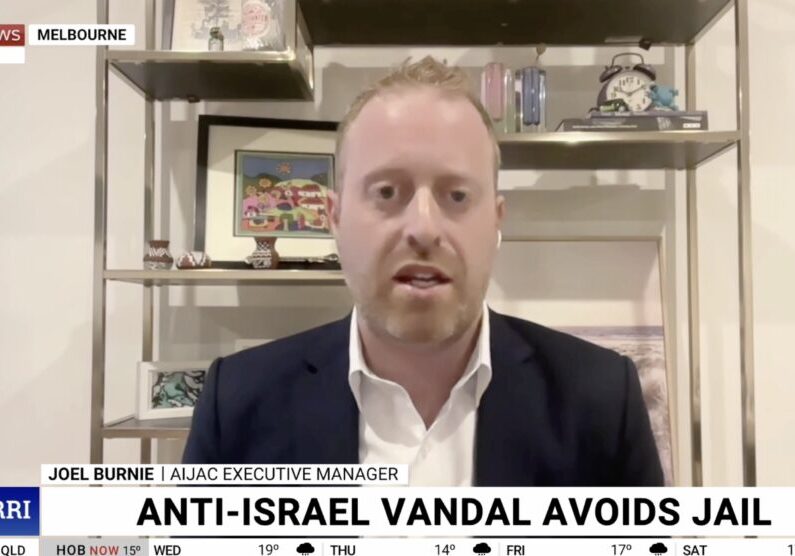
Sentencing for antisemitic vandalism “manifestly inadequate”: Joel Burnie on Sky News
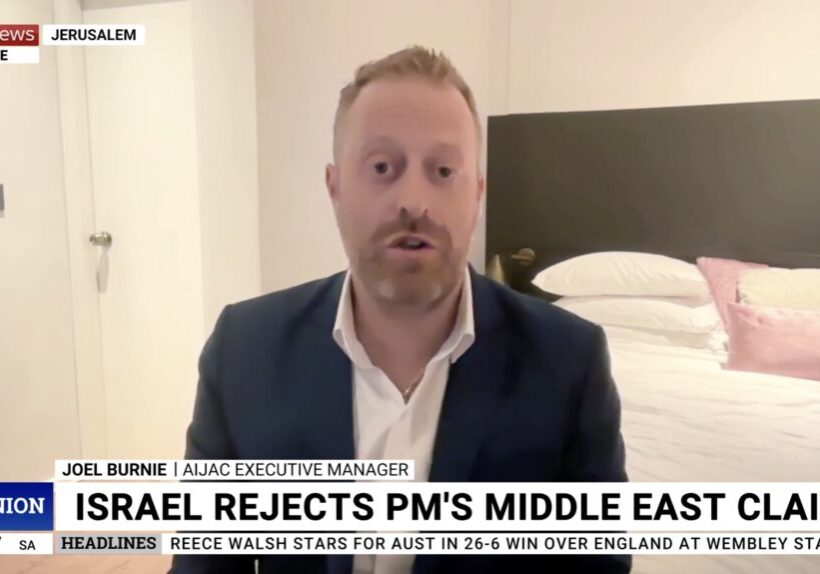
“Bittersweet” aftermath of hostage release deal: Joel Burnie on Sky News
